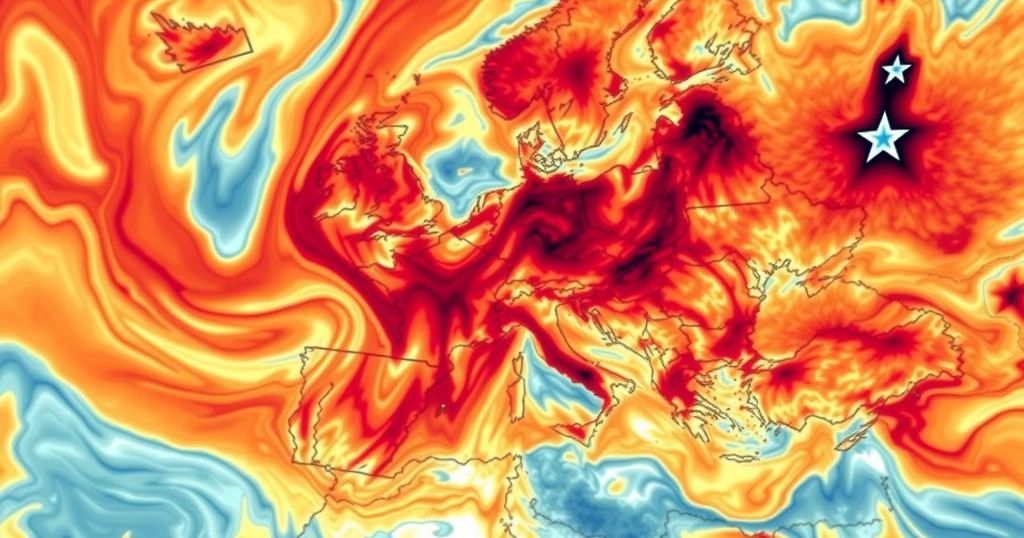The World Meteorological Organization confirms 2024 as the hottest year on record, with temperatures 1.55 degrees Celsius above pre-industrial levels. This extreme heat is linked to destructive wildfires in Los Angeles, demonstrating the urgent need for climate action. The findings highlight the necessity of adhering to the goals of the Paris Agreement, emphasizing that every degree of warming has significant implications for global well-being and environmental stability.
The World Meteorological Organization (WMO) has confirmed that 2024 is officially the hottest year on record, with temperatures rising 1.55 degrees Celsius above pre-industrial levels. This announcement follows devastating wildfires in Los Angeles, a stark reminder of the extreme weather exacerbated by climate change. WMO spokesperson Clare Nullis highlighted the extraordinary conditions, including elevated land and ocean surface temperatures that have severely impacted numerous countries worldwide. The data reflects a critical moment, as four out of six monitored datasets show an alarming rise above the 1.5 degrees Celsius threshold, a key target set by the 2015 Paris Agreement to mitigate climate change effects.
Despite the rising temperatures, WMO Secretary-General Celeste Saulo emphasized the importance of viewing these data trends over decades rather than isolated years. “Climate history is playing out before our eyes,” Saulo noted, highlighting the ongoing need for urgent climate action. UN Secretary-General António Guterres reiterated this sentiment, describing current conditions as a call to action for governments worldwide. The ongoing wildfires in Los Angeles serve as a formidable reminder of the immediate impacts of climate change, prompting calls for enhanced national climate action plans to combat rising temperatures and protect livelihoods and ecosystems.
Furthermore, the study indicates that the oceans are warmer than ever recorded, with the upper 2,000 meters showing significant increases in temperature, representative of about 90 percent of the accumulated heat from global warming. As ocean heat content plays a critical role in indicating climate change, this finding underlines the necessity for a comprehensive global response to climate issues moving forward.
In conclusion, the confirmation of 2024 as the hottest year serves as a stark warning regarding the escalating impacts of climate change. With record high temperatures recorded and extreme weather events becoming increasingly common, immediate and impactful action is imperative to safeguard the future of our planet. The commitment to the Paris Agreement goals remains essential, emphasizing the need to limit global warming and address the climate crisis effectively.
The WMO’s announcement regarding the unprecedented rise in global temperatures underscores a growing trend linked to climate change. The year 2024 has surpassed previous records, highlighting the concerning trajectory of global warming and its effects on the environment and human activities. With the Paris Agreement aiming to limit temperature increases, this development poses significant challenges for policymakers and global leaders as they navigate the urgent need for comprehensive climate action.
The evidence presented by the WMO concerning the record-breaking temperatures of 2024 provides clear insight into the effects of climate change, including extreme weather conditions such as the Los Angeles wildfires. The urgent need for global action is echoed by UN leaders, emphasizing the target of maintaining temperature increases within 1.5 degrees Celsius. Overall, the situation calls for heightened awareness and decisive measures to combat climate impacts effectively.
Original Source: www.connectedtoindia.com






